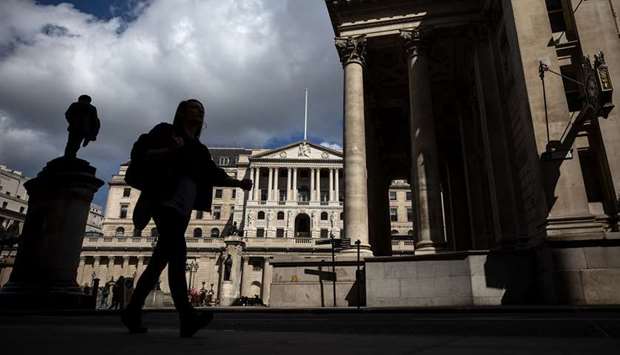The Bank of England cut its main interest rate to a record-low 0.1% from 0.25% yesterday, to tackle an “economic shock” from the coronavirus pandemic.
The announcement came only eight days after the BoE slashed borrowing costs to a then record-low 0.25% from 0.50%, also in an emergency move triggered by Covid-19.
Joining other central banks in stepping up action over the virus, the Bank of England has also increased holdings of UK government and corporate bonds to £645bn ($766bn, €700bn). This increases by £200bn the BoE’s so-called quantitative easing, a process firmly established by central banks following the global financial crisis more than a decade ago to pump out much-needed liquidity.
“The spread of Covid-19 and the measures being taken to contain the virus will result in an economic shock that could be sharp and large, but should be temporary,” the BoE said in a statement following yesterday’s special meeting.
The central bank added that it was helping “to meet the needs of UK businesses and households in dealing with the associated economic disruption”. The announcement came one day after new BoE governor Andrew Bailey urged companies to hold back from cutting jobs because of the virus fallout.
“Bailey has hit the ground running, just three days into his new job,” noted Fiona Cincotta, analyst at City Index trading group.
“His move comes following former governor Mark Carney’s slashing of rates by 50 basis points earlier in the month and as central banks across the globe ramp up their response to the coronavirus impact.”
The pound won back some ground against the dollar, having hit the lowest level for 35 years on Wednesday as markets doubted enough was being done by the UK government and BoE to address the fallout. “Once again we’re seeing central bankers using the playbook from the last financial crisis,” said Kevin Doran, chief investment officer at AJ Bell.
“Overnight we saw the ECB roll out the QE cannons.”
Following the latest BoE action, sterling jumped 1.0% to $1.1719, having slumped more than 4% a day earlier.
British finance minister Rishi Sunak on Tuesday unveiled a £330-billion package of government-backed loans for virus-hit business.
The measures are equivalent to 15% of Britain’s annual GDP, but critics said the measures did not go far enough.
More than 100 people have died in Britain and more than 2,600 have been confirmed infected by Covid-19.

A pedestrian walks past the Bank of England in the City of London. Joining other central banks in stepping up action over the virus, the BoE has also increased holdings of UK government and corporate bonds to u00a3645bn ($766bn, u20ac700bn).
